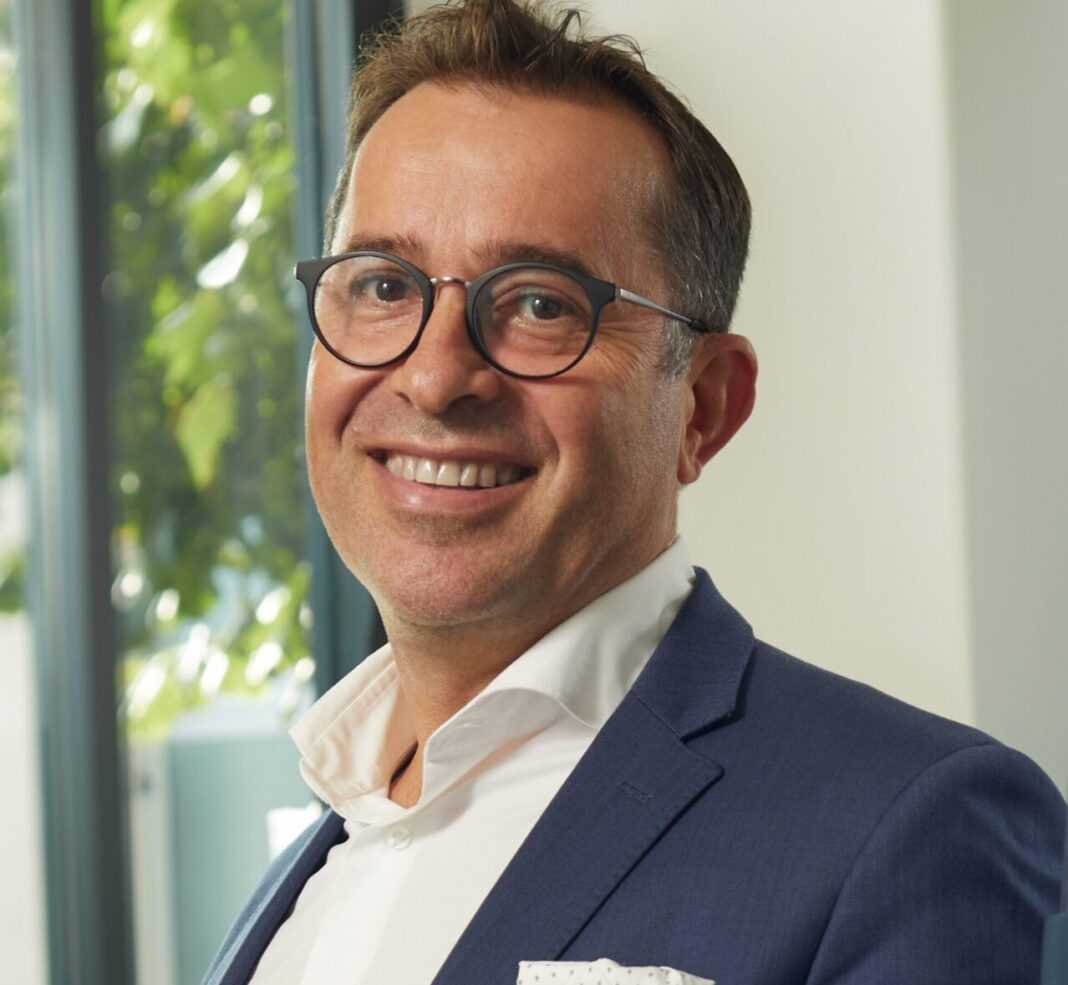MILAN – We are kicking off the first of a series of meetings between the editors-in-chief of Comunicaffè and Comunicaffe International and Gruppo Cimbali managers. These encounters consist of conversations on current topics and in-depth analysis over a coffee extracted with a Faemina in the lounge of House of BMW at 10 Via Verri, in the heart of Milan’s Quadrilatero della Moda (Fashion District).
The first of these meetings is with Maurizio Tursini, Chief Products & Technologies Officer for Gruppo Cimbali, who is responsible for developing technology and products for the leading company in the Italian professional espresso machine sector.
Tursini sums up his work as follows:
“Listening to the market, predicting future trends, and developing a strategic technology and product plan for the years to come.” In short, a role involving a considerable degree of responsibility, which Tursini carries out with an innovative mindset.
Tursini, how many years can you see into the future?
“That would require a crystal ball. But generally speaking, from an operational planning perspective, our company develops projects which, as far as products are concerned, usually run for three years. The technologies must look further ahead and go beyond five years.”
Can you define the famous 4.0 of machines?
“There are two sides to 4.0: on the one hand, allowing our customers to carry out tax-related operations on the machines they purchase, and, on the other, focusing on the more technological aspect, which means having machines connected to our users’ ecosystem and driving the entire industry to introduce connectivity in order to improve work conditions, create new business models, and increase productivity.
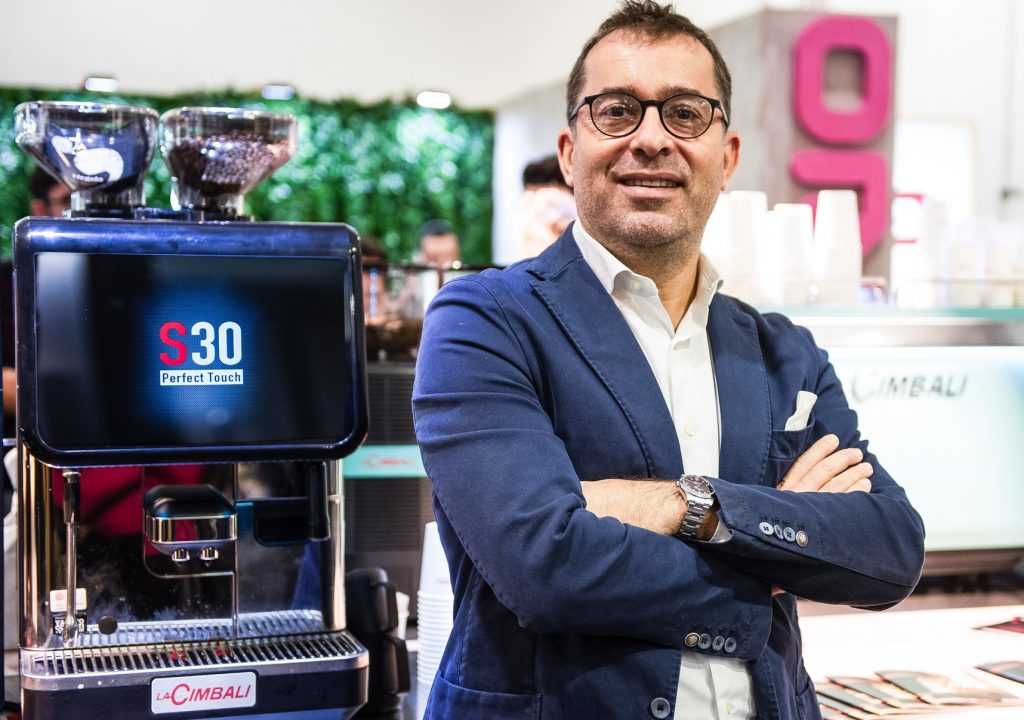
Technology 4.0 can also lead to better energy savings: the goal is to have machines connected within an ecosystem and this is possible through artificial intelligence, which is also used to develop algorithms that allow customers to optimise machine use and consequently save energy.
We are already doing this: at Host we presented an artificial intelligence algorithm applied to one of our connected machine control platforms, through which the customer can check how the machine is working and decide to optimise its start-up and shut-down.”
Years ago Gruppo Cimbali talked about 4.0 for converting production lines. Now it has arrived on machines, together with remote management: what impact can IoT have on machines?
“Gruppo Cimbali has been ahead of its time in this respect, which has proved to be a competitive advantage, especially during the pandemic period, which effectively accelerated the introduction of the Internet of Things, the famous IoT, in all sectors. This led us to focus even more closely on that segment of tomorrow’s customers, the new generations for whom human/machine interaction is becoming increasingly digital. The Internet of Things means enabling our customers to have a fleet of machines that are connectable or always connected, integrated into the ecosystem. We place emphasis on this word because it is fundamental.”
Isn’t there a risk that these connected machines will become luxury fully automatic models?
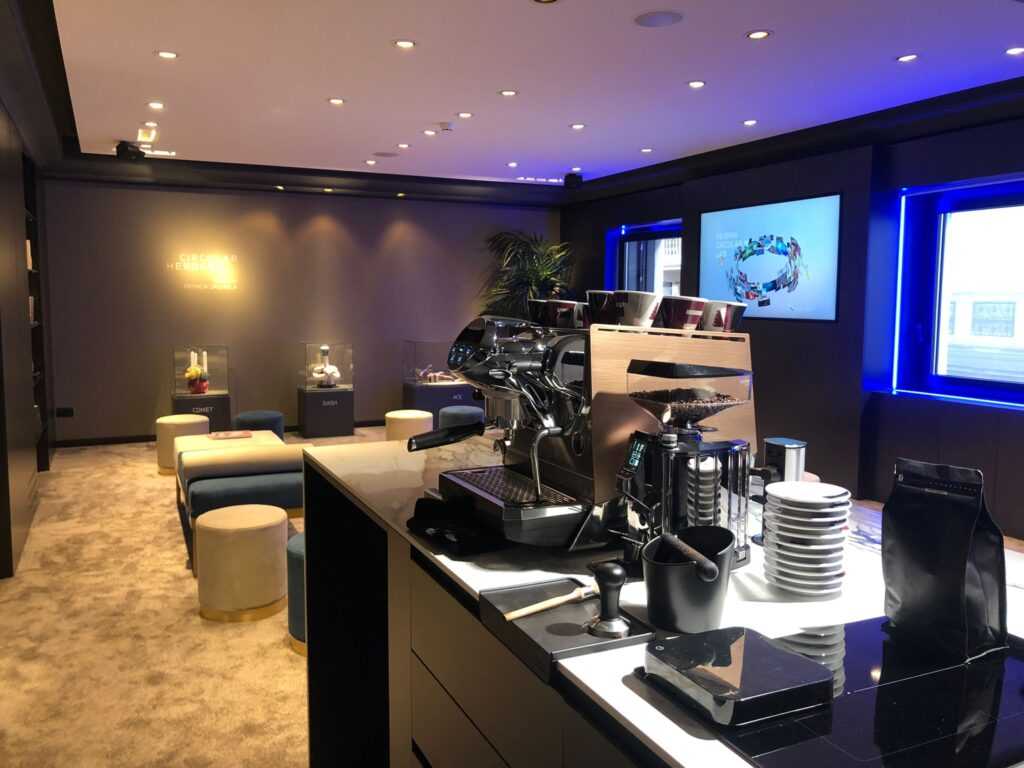
“No. Like all technologies, 4.0 must be seen as a support for users, not a cold tool that excludes them. It is a different way of interacting with the machine that allows you to do more things. There will be an evolution, but always with a view to facilitating operations for customers.
In fully automatic machines, technology 4.0 will be even more developed: inside these machines there is a system for connecting with the ecosystem that allows the production of many artificial intelligence algorithms, such as predictive maintenance.”
Tursini, how do you maintain a distinction between fully automatic and traditional machines?
“They are two products with a completely different user experience: the traditional machine is what we Italians find in bars, whereas fully automatic models are increasingly used in airport lounges and hotels. These two devices, although different, share a certain type of so-called ‘basic’ technology featuring extraction, grinding, preparation of milk and infusions, and finally a control part. They are therefore cross-cutting technologies, but the definition of their architecture is completely different.”
Machines 4.0 and by extension also bars 4.0: how does the ability to remotely manage support benefit those behind the counter, now that the pandemic has redesigned everything outside the home?
“Let me stress that our machine, as 4.0, must be integrated into the customer’s ecosystem. It must therefore be open and dialogue with the systems of customers who have chosen Gruppo Cimbali machines, which, through artificial intelligence and control platforms, can optimise their expenditure: from energy consumption to coffee consumption, from interaction with other machines on the premises to management of raw materials. It is a machine that optimises profitability.”
Which machines are currently 4.0 at Gruppo Cimbali?
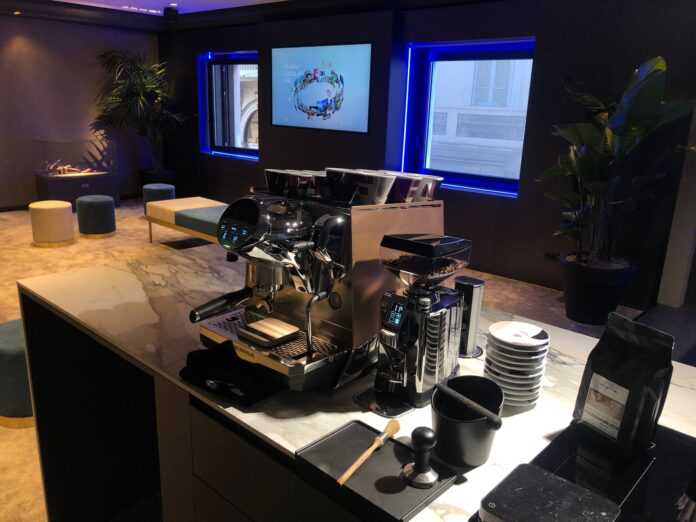
“All the machines we have launched in recent years: the E71, the President, the M200, Faemina, when combined with grinders, but also the fully automatic models, the S15 and the S60.
So never the E61?
“Our E61 is happily destined to remain a timeless iconic model.”
How does 4.0 affect the work behind the counter?
“When it comes to actually preparing a drink, connectivity is somewhat peripheral if you do not consider it as applied to one of the technologies we presented at Host, namely the electronic nose: in this case we can indulge in finding ways of using it, enabling us to check the freshness of the mixture in the hopper and thereby optimising bean consumption for baristas.”
However, you are the first to have translated the electronic nose into a machine …
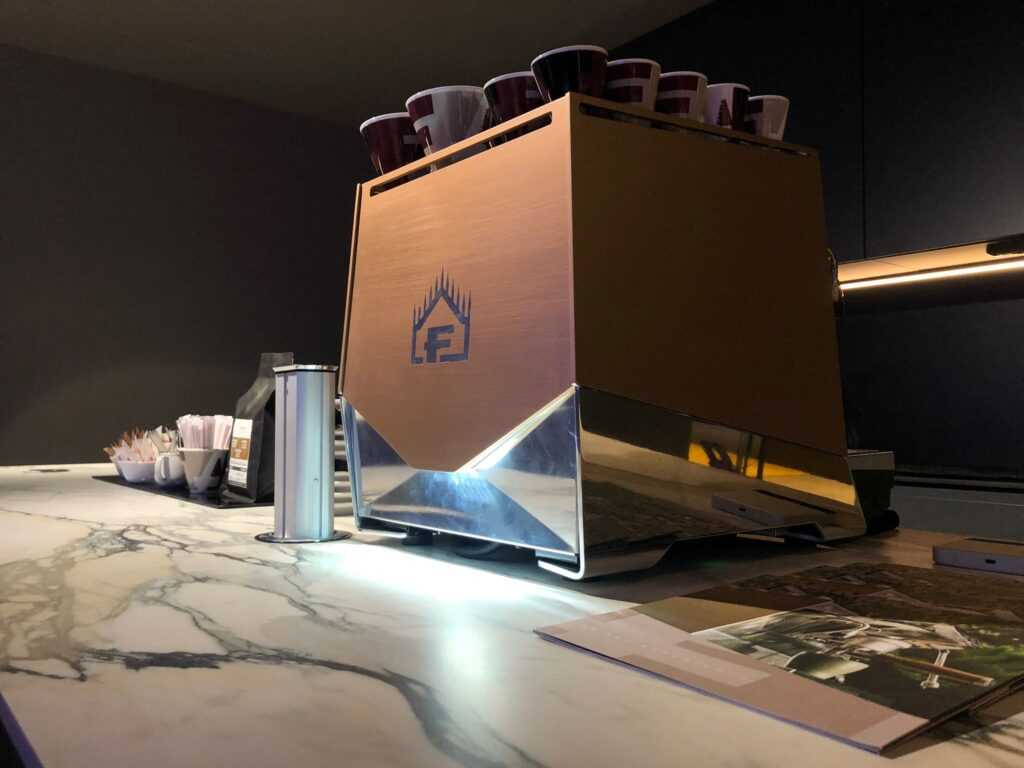
“The electronic nose has also been discussed in other sectors for some time. I come from the household appliances sector, where this was already under discussion in 2011. It is also true that technologies have a long development life cycle. This is what has happened since I joined Gruppo Cimbali in 2019: one of the components of the electronic nose was a rather large chip. In the space of three years, we have gone from an object with a height of half a centimetre to a micron-long sheet that almost breaks when touched. We have always believed in it and this has been our strength: continuing to focus on technology, its applications and its future.”
Baristas may be passionate about the technology and the possibilities it offers, but how many people know there is funding for 4.0 equipment?
Tursini: “This is an important question because probably not all customers are aware of this funding, which is not easy to understand because you have to wade through the bureaucratic and legal aspects. Companies that meet the requirements can also join the same group. We need to understand how this funding is applied and exactly what is our role and that of customers, who have the right and responsibility to access it, using machines that allow them to obtain these benefits that are still available in 2022 and that we as a company support with our advice.
As soon as a customer requests it, we provide all the necessary documentation to make the application.”
4.0 inevitably means electronics and discrete components: what are the major difficulties in finding parts to build the machines and also spare parts?
“The problem is very serious and concerns all sectors, including the automotive and household appliance sectors. It is very difficult to find components, partly because there has been a run on these products and partly because many electronics companies have seized the opportunity to renew their product portfolios, phasing out or discontinuing obsolete components in order to raise prices.
From one day to the next, we have had to deal with suppliers who have told us that they will no longer be producing certain components within a few months. We have therefore been working for a year on alternative suppliers and new solutions to manage this very complex situation.”
Tursini, is there any other 4.0 innovation we can discuss?
“We have mentioned the electronic nose and we have talked about energy consumption presented at Host, but also about predictive analysis: at Gruppo Cimbali we want to increasingly move towards solutions, not only products. We want to offer our customers solutions, of which the machine is just one part. We are therefore insisting on every aspect of connectivity, service and artificial intelligence: we believe that this is where the future lies.”
Don’t you think they are more aimed at coffee shop chains rather than individual baristas?
“We have different types of customers, from chains to small bars to hotels: our strength is being able to offer the right solution for each customer we serve. There will be a product or service that is more suited to chains, such as our Art&Coffee remote machine control platform presented at Host, which allows the fleet manager to control the machine fleet installed throughout the country. This could obviously help more than one chain. We can offer baristas, on the other hand, the electronic nose or energy consumption control.”
We have talked about the future, but what do you see as the future prospects for 4.0?
“I think that funding will continue to be very important in the near future. Generally, people are conservative and tend to resist change. When there is a technology that may be initially more expensive than a more traditional solution, it is important that there are tools and opportunities to support our sector. I hope that there will be continued progress in this direction.”
About Gruppo Cimbali
Gruppo Cimbali is one of the leading manufacturers of professional machines for making coffee and milk-based drinks, as well as coffee shop equipment.
The Group, which includes the La Cimbali, Faema, Slayer and Casadio brands, operates through three production plants in Italy and one in the United States (in Seattle, where the machines are produced under the Slayer brand), employing a total of over 750 employees.

The Group’s commitment to spreading espresso coffee culture and promoting the local area led to the foundation of the MUMAC Coffee Machine Museum in 2012, the first and largest permanent exhibition dedicated to the history, world and culture of espresso machines, located at the Gruppo Cimbali headquarters in Binasco.
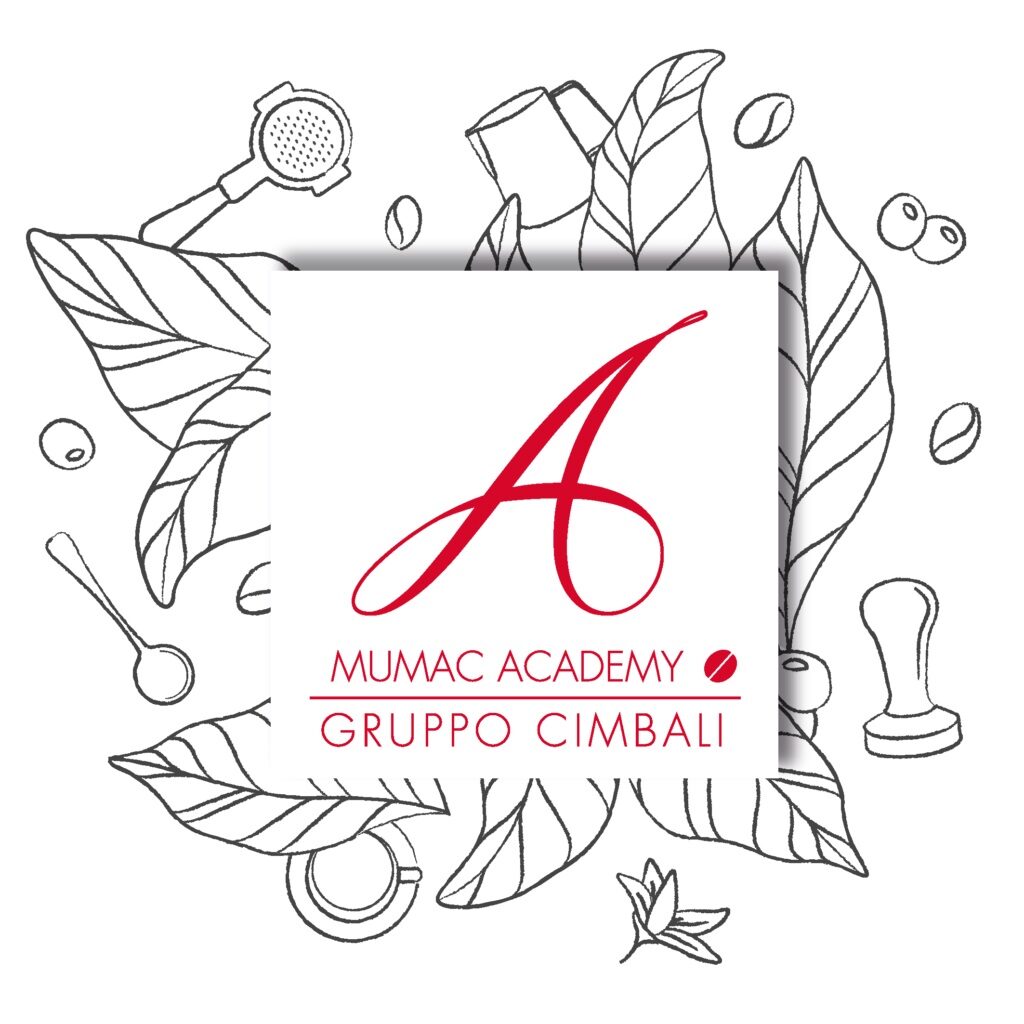
MUMAC is home to MUMAC Academy, Gruppo Cimbali’s coffee machine academy, a training, promotion and research centre.
Facebook @CimbaliOfficialpage
Instagram @cimbali_official
Facebook @FaemaOfficial
Instagram @faema_official




